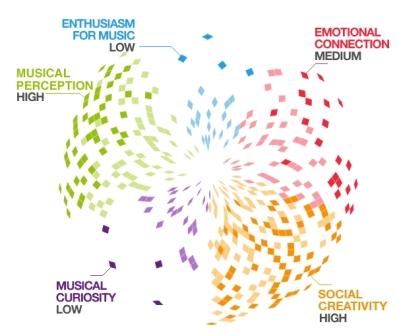

They subsequently published it separately. He did so, replacing it with a sparkling Allegro. Indeed, Beethoven's publishers persuaded him to remove it from its original setting as the last movement of a string quartet.

While some languages in West Africa have no term for music, some West African languages accept the general concepts of music.( ) Musiqi is the Persian word for the science and art of music, muzik being the sound and performance of music,( ) though some things European-influenced listeners would include, such as Quran chanting, are excluded.īen Watson points out that Ludwig van Beethoven's Große Fuge (1825) "sounded like noise" to his audience at the time. Many other languages have terms which only partly cover what Western culture typically means by the term music.( ) The Mapuche of Argentina do not have a word for music, but they do have words for instrumental versus improvised forms ( kantun), European and non-Mapuche music ( kantun winka), ceremonial songs ( öl), and tayil. There is no term for music in Nigerian languages Tiv, Yoruba, Igbo, Efik, Birom, Hausa, Idoma, Eggon or Jarawa. Among the Aztecs, the ancient Mexican theory of rhetoric, poetry, dance, and instrumental music used the Nahuatl term In xochitl-in kwikatl to refer to a complex mix of music and other poetic verbal and non-verbal elements, and reserved the word Kwikakayotl (or cuicacayotl) only for the sung expressions. Inuit and most North American Indian languages do not have a general term for music. Concepts of music īecause of differing fundamental concepts of music, the languages of many cultures do not contain a word that can be accurately translated as "music" as that word is generally understood by Western cultures. Others argue it is music because the conventional definitions of musical sounds are unnecessarily and arbitrarily limited, and control over the organization of the sounds is achieved by the composer and performer(s) through their gestures that divide what is heard into specific sections and a comprehensible form.

Some argue that 4′33″ is not music because, among other reasons, it contains no sounds that are conventionally considered "musical" and the composer and performer(s) exert no control over the organization of the sounds heard. The audience hears only whatever ambient sounds may occur in the room. The written score has three movements and directs the performer(s) to appear on stage, indicate by gesture or other means when the piece begins, then make no sound throughout the duration of the piece, marking sections and the end by gesture. Īn often cited example of the dilemma in defining music is the work 4′33″ (1952) by the American composer John Cage (1912–1992). However, some music genres, such as noise music and musique concrète, challenge these ideas by using sounds not widely considered as musical, beautiful or harmonious, like randomly produced electronic distortion, feedback, static, cacophony, and sounds produced using compositional processes which utilize indeterminacy. The Concise Oxford Dictionary defines music as "the art of combining vocal or instrumental sounds (or both) to produce beauty of form, harmony, and expression of emotion". The problem of defining music is further complicated by the influence of culture in music cognition. A number of explanations start with the notion of music as organized sound, but they also highlight that this is perhaps too broad a definition and cite examples of organized sound that are not defined as music, such as human speech and sounds found in both natural and industrial environments. Many authorities have suggested definitions, but defining music turns out to be more difficult than might first be imagined, and there is ongoing debate. For the journal, see Organised Sound.Ī definition of music endeavors to give an accurate and concise explanation of music's basic attributes or essential nature and it involves a process of defining what is meant by the term music.


 0 kommentar(er)
0 kommentar(er)
